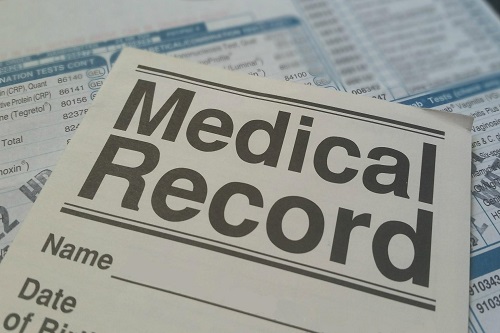Concerns with Consumer Access in State Immunization Registry

States are required to maintain immunization records on their residents. These records serve several purposes. They allow state health officials to track the number of people vaccinated against specific diseases and viruses, which informs the agency’s approach to public health. Residents can also use these records to track their own immunization history and status. They can look up specific information in terms of when or if they received their shots, so they know if they have complete immunization or if they need to receive another dose.
Storing this information and making it available to the public is not without its challenges. Residents understandably have privacy and accessibility concerns, and state health departments need to communicate clearly with the local population to ensure their needs are met.
Privacy & Security
Privacy and security are top concerns for residents. Each vaccination record should only be available to the person it concerns. A resident should only be able to access another person’s records if they are their legal guardian. The state should maintain a secure database of information with a secure, multi-factor login process. The user must upload specific personal data to access the information, including their date of birth, social security number, and home address.
Data Quality & Deduplication
Consumers need to be able to quickly make sense of their immunization records once they have access to their files. The record shouldn’t contain duplicate information, and the database should use a standard template, even if the consumer received vaccinations from different healthcare providers. Considering providers and clinics use different types of electronic health records systems, the agency will need to use a software solution for public health agencies that quickly collects and organizes vaccine information while giving the user a chance to correct or delete duplicate information.
Flexibility & Adaptability
The immunization database should be flexible enough to include supplemental information in addition to the shots the person received, such as clinical notes about the patient’s health history and whether the patient has any religious or medical exemptions. These records may need to be adapted to customize the user experience. This may include sending automated alerts to the end user when they have an upcoming vaccination appointment.
Equity
It’s important to ensure that every state resident has access to the same information regardless of their background or situation. This includes providing vaccine information in multiple languages and adding features that cater to persons with disabilities.
Adoption & Messaging
The state immunization department will need to decide how the information system will be released to the public. The state may decide to do a pilot program or launch it within the department before the official launch. Information about the system will need to be distributed to the population online or in public message campaigns. The agency will need to post a link to the information database on its website.
State Immunization Registry: FAQs
Is There a Database of Immunization Records?
Yes, every state has its own immunization information system (IIS) that the state health department oversees. States share generalized vaccine information with federal public health agencies, but they don’t have personal identifying information, such as the person’s name. Vaccination statistics are then collected nationally to give public health officials an accurate idea of how many people have been vaccinated in the community.
Is There a National Database of Immunizations?
No, there is no national database of immunization. The Centers for Disease and Prevention (CDC) doesn’t have specific vaccination records on file. Residents will need to contact the immunization information system in their state to access this information.
However, the CDC does have contact information and links to every state’s immunization information system to help the public locate and access their records.
Do All States Have Immunization Registry?
Yes, all states have immunization registries and vaccination databases. This is an important part of keeping the public safe and preventing the spread of potentially dangerous viruses and diseases. States must collect vaccination records from individual providers to keep the public informed. Patients may receive their shots from different providers or clinics, and it’s up to the state to organize and consolidate this information into a single, easily accessible location.
Having personalized vaccination information on file is essential to combating the spread of disease. States implement their own disease and infection prevention guidelines based on the number of people vaccinated within the community. Such was the case with COVID-19. As the vaccination rate increased, many states eventually eased their restrictions and social isolation guidelines.
What States Have Immunization Registries?
Every state in the country has its own public health software and immunization registry, including the American Samoa, the Commonwealth of the Northern Mariana Islands, the District of Columbia, Guam, Marshall Islands, Palau, and Puerto Rico. Some states may also oversee a regional and local immunization registry that serves a specific region or city within the state, such as San Antonio, TX, and New York City.
Privacy, security, equity, and accessibility are top of mind for many consumers and public health advocates. States will need to address these consumer concerns as they continue to make this information available to the public. If the state’s immunization information system is out of date or it is difficult for certain populations to access this information, the state should implement new technology to streamline the data collection process while improving accessibility.
Addressing concerns with consumer access in state immunization registries highlights the broader need for comprehensive understanding and implementation of the importance of centralized Immunization Information Systems (IIS). These systems play a crucial role in managing immunization data, ensuring accurate, secure, and accessible records for both healthcare providers and the public. By delving into the fundamentals and significance of IIS, we can better appreciate how these systems support public health goals, enhance vaccine coverage, and facilitate efficient disease prevention strategies.